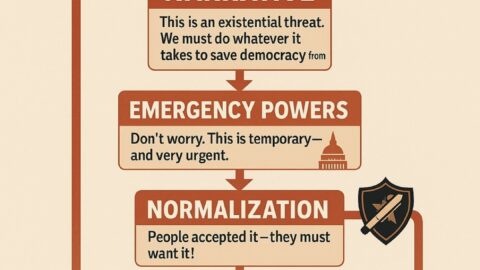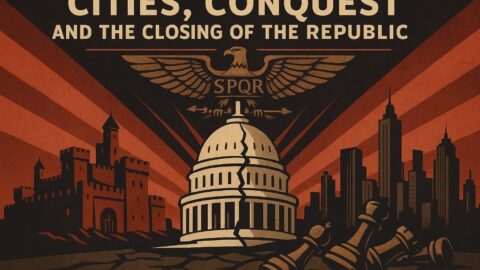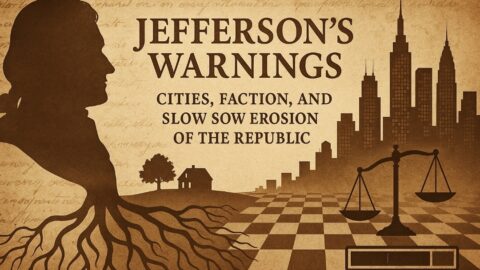“There are two distinct classes of men in the nation, those who pay taxes, and those who receive and live upon the taxes.” — Thomas Paine
Thomas Paine’s quote, “There are two distinct classes of men in the nation, those who pay taxes, and those who receive and live upon the taxes,” highlights a divide that can indeed create biases, tensions, and infighting within a society. This dichotomy can foster a range of social, economic, and political conflicts, which I’ll explore below:
1. Perception of Class Divide:
- Taxpayers vs. Beneficiaries: Paine’s statement frames society as being divided between those who contribute financially to the state (taxpayers) and those who depend on state funding (recipients). This framing can lead to the perception of a fundamental division between “producers” and “dependents,” potentially breeding resentment and suspicion.
- Us vs. Them Mentality: This dichotomy can foster an “us vs. them” mentality, where taxpayers may view those who receive government assistance as a burden or even as undeserving. Conversely, those who rely on government support may feel stigmatized or unfairly judged by the broader society.
2. Bias and Stereotyping:
- Negative Stereotypes: The notion that some people “live upon taxes” can lead to negative stereotypes of individuals who receive government aid, such as welfare recipients or public sector employees. This can reinforce harmful biases that paint all recipients of government funds as lazy, unproductive, or dependent.
- Moral Judgments: Taxpayers might feel morally superior, believing that they are the ones who “carry” the nation economically. This can create biases that devalue the contributions of those who work in publicly funded roles, such as teachers, police officers, or healthcare workers, who also provide essential services.
3. Social and Political Tensions:
- Political Polarization: The divide between taxpayers and those who “live upon taxes” can be exploited by politicians to gain support, often by appealing to the frustrations of taxpayers. This can lead to political polarization, with parties and voters deeply divided on issues of taxation, welfare, and government spending.
- Infighting: Within a society, this perceived division can lead to infighting, particularly during economic downturns when resources are scarce. Taxpayers may push for cuts to social programs, while beneficiaries and their advocates argue for maintaining or increasing support.
4. Economic and Social Implications:
- Undermining Social Solidarity: The notion of a strict divide can undermine social solidarity and the sense of a shared community. Instead of viewing taxation as a collective contribution to the common good, it might be seen as a zero-sum game where one group is unfairly burdened by the needs of another.
- Impact on Public Policy: Policymakers might feel pressured to cater to the interests of the taxpayer class at the expense of social welfare programs, potentially leading to cuts in public services and support for vulnerable populations.
5. Exacerbation of Inequality:
- Widening Economic Divide: If this divide becomes entrenched, it can exacerbate economic inequality. Those who are perceived as “living upon taxes” might find themselves with reduced support and opportunities, while those who pay taxes might push for policies that benefit them, such as tax cuts, further widening the gap.
- Reduced Social Mobility: When social welfare programs are stigmatized or cut, it can reduce social mobility, making it harder for individuals to move out of poverty or improve their economic standing, thereby reinforcing class divides.
6. Impact on Public Sector Employees:
- Devaluation of Public Service: Public sector employees, who are funded by taxpayer money, might feel undervalued or attacked by the notion that they “live upon taxes.” This can demoralize those who work in essential public services and lead to a decline in the quality of public institutions.
- Professional vs. Beneficiary Divide: Even within the public sector, a divide can form between professionals who manage and distribute resources and the beneficiaries of these resources, further complicating the dynamics within government-funded programs.
7. Long-Term Social Consequences:
- Erosion of Social Safety Nets: Over time, the division Paine describes could lead to the erosion of social safety nets as taxpayers push for reduced government spending. This could result in increased poverty and social instability, creating a feedback loop of resentment and conflict.
- Challenges to Democracy: A deeply divided society, where taxpayers and recipients are pitted against each other, can challenge democratic processes. When large segments of the population feel alienated or vilified, it can undermine the legitimacy of democratic institutions and lead to social unrest.
8. Nuanced Understanding Needed:
- Recognizing Interdependence: It’s important to recognize that society is more interdependent than Paine’s dichotomy suggests. Those who pay taxes and those who receive government funding often overlap, and the services funded by taxes benefit the entire society, including taxpayers.
- Collective Responsibility: Rather than seeing taxation as a burden and government support as a handout, fostering a sense of collective responsibility and mutual benefit can help mitigate the biases and tensions that arise from such a divide.
Thomas Paine’s quote, “There are two distinct classes of men in the nation, those who pay taxes, and those who receive and live upon the taxes,” can contribute to feelings of entitlement on both sides of the divide. Here’s how this dynamic might unfold:
1. Entitlement Among Taxpayers:
- Sense of Ownership: Taxpayers might feel a sense of entitlement over government resources and decisions, believing that their contributions give them a greater say in how the government operates and how funds are allocated. This can lead to the perception that they are more deserving of certain services or privileges.
- Expectations of Benefits: Taxpayers might expect direct benefits from their contributions, such as better public services, infrastructure, or tax cuts. If these expectations are not met, they may feel justified in expressing resentment or demanding more from the government.
- Moral Superiority: Some taxpayers might develop a sense of moral superiority, believing that they are the ones supporting society, while others are merely “taking” from it. This can foster a dismissive attitude toward those who rely on government assistance.
2. Entitlement Among Recipients of Government Aid:
- Dependence on State Support: Those who receive government assistance may come to see it as something they are entitled to, especially if they have been dependent on such support for an extended period. This can lead to expectations that the government will continue to provide for them, regardless of the broader economic or political context.
- Justified Claims: Individuals who rely on public funds, such as welfare recipients, public sector employees, or pensioners, may feel entitled to these benefits because they believe they have earned them through their contributions to society, such as paying taxes in the past, serving in public roles, or simply by virtue of citizenship.
- Resistance to Change: Recipients of government aid may resist changes to programs that they depend on, viewing any reduction in benefits or services as an unfair breach of their entitlements.
3. Mutual Resentment and Conflict:
- Class Tensions: The idea of two distinct classes can deepen class tensions, where taxpayers resent those who “live upon taxes,” and recipients of government aid feel entitled to their benefits and may resent taxpayers for questioning their need.
- Polarization: This divide can lead to social and political polarization, with each group feeling entitled to the resources and rights they believe they deserve, often at the expense of the other group. This can result in a lack of empathy and understanding between different segments of society.
4. Impact on Public Discourse:
- Public Debate: The entitlement mentality on both sides can influence public discourse and policy debates. Taxpayers might advocate for reduced government spending and lower taxes, while beneficiaries may push for the expansion of social programs, each side claiming their stance is justified.
- Policy Outcomes: Politicians may exploit these sentiments of entitlement to garner support, leading to policies that cater to one group while alienating the other. This can further entrench the divide and make it more difficult to find balanced, equitable solutions.
5. Erosion of Social Solidarity:
- Weakened Social Cohesion: When segments of society feel entitled in a way that pits them against each other, it can weaken social solidarity. Instead of seeing themselves as part of a cohesive whole, people may begin to view society as a competition for resources, leading to further division.
- Undermining Collective Responsibility: The concept of collective responsibility may be eroded as each group focuses on what they believe they are entitled to, rather than considering what is best for society as a whole.
6. Long-Term Consequences:
- Sustainability of Social Programs: If entitlement attitudes become too entrenched, it may lead to unsustainable demands on social programs, where recipients expect ongoing support without consideration for the financial realities or the contributions needed to sustain these programs.
- Civic Engagement: Over time, both taxpayers and recipients might become disengaged from broader civic responsibilities, focusing solely on their own perceived entitlements rather than participating in the democratic process or contributing to the community.
7. Potential Solutions:
- Promoting Understanding: Encouraging a broader understanding of the interdependence between taxpayers and beneficiaries can help mitigate feelings of entitlement. Emphasizing that taxes fund essential services that benefit everyone can foster a sense of shared responsibility.
- Balanced Policies: Creating policies that balance the needs and contributions of both taxpayers and recipients can help reduce feelings of entitlement and promote fairness. This includes ensuring that social programs are sustainable and that taxpayers feel their contributions are being used effectively.
In conclusion, Paine’s quote highlights a division that can foster entitlement on both sides—among those who pay taxes and those who benefit from them. This sense of entitlement can lead to social conflict, polarization, and a weakening of social cohesion. Addressing these issues requires fostering a more nuanced understanding of the roles that both taxpayers and beneficiaries play in society, and creating policies that promote fairness and shared responsibility.







One Response
When looking at this article, it reminded me of the story of Davy Crockett and his encounter with a citizen over legislating funds for welfare ( https://www.scribd.com/document/60124834/A-Humbling-Lesson ) and how even a small amount of money will easily balloon into incomprehensible amounts over time.
We have been well indoctrinated into this since at least the FDR administration. These government administrators have well ingrained (and as you note, polarized) their social programs into our collective subconscious minds, to firmly embed governmental controls into us. We are now quite entangled into a system of providing assistance according to bureaucratic diktat and law. There is the observation of institutionalized generational welfare, of entitlements and also of incentives to not work past a certain point or to have a traditional family structure where one makes just enough money to not gain a means to get out of the hole, so that one can never really escape his predicament because of bureaucratic red tape.
We are mandated to set aside social security funds (both by ourselves and our employers) with absolutely no control over how those funds are to be administered through retirement. If given the opportunity for private investment, such funds could be quite remunerative compared to the governmental controls that we are left with.
I am also reminded of the Grace Commission, as directed by Ronald Reagan, which found that (regardless of whether or not a particular governmental program or department was even necessary) everything had been duplicated by 50%. There is a massive governmental bureaucracy that continues to grow like a cancer for which retirement packages must be set aside for.
So what do we do with a systematized and well established agenda and a psychologically conditioned public? How do we move from a focus of government handouts versus contributing to self-esteem and self-reliance by utilizing boot-strap programs that will teach a person to fish rather than to be given fish. There are definitely segments of society, such as the infirm, the fatherless and widowed that traditionally received community help prior to the 20th Century programs we now experience. How do we incentivize social support?
As noted in the points of your article, I hope that we can get out of this infinity loop before it is too late.